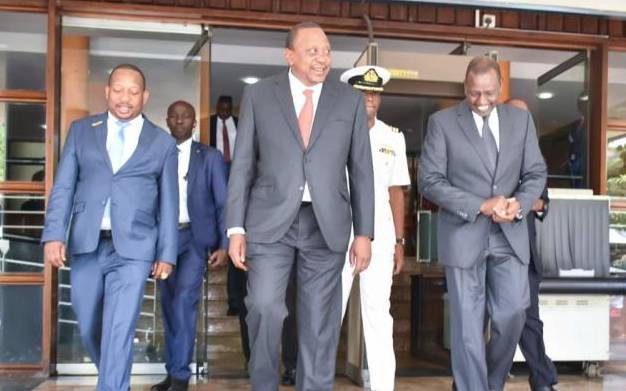
President Uhuru Kenyatta and his Deputy Dr. William Ruto, when they had lunch at the DP's Harambee House Annex office along Harambee Avenue, Nairobi. Also present was Nairobi Governor Mike Mbuvi (L). [File, Standard]
Kenya is a country on a quest to become a nation. This quest is depicted in the diversity of her people, and the values that permeate this diversity; resilience, hard work and the strength to overcome adversity, and in our dreams and aspiration; the glue that holds us together, which we intend to hand over to the generations that will come after us.